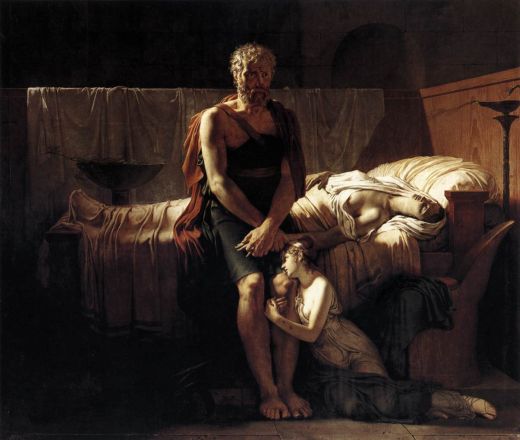
Viewed in relation to its purposes, the law code of Lycurgus is a masterpiece in the art of statecraft and humanity. He desired a powerful, unassailable state, firmly established on its own principles. Political effectiveness and permanence were the goal toward which he strove, and he attained this goal to the full extent possible under the circumstances. But if one compares the purpose Lycurgus had in view with the purposes of humankind, then a deep abhorrence assumes the place of the approbation which we felt at first glance. Anything may be sacrificed to the good of the state except that end for which the state serves as a means. The state is never an end in itself; it is important only as a condition under which the purpose of mankind can be attained, and this purpose is none other than the development of all man’s power, his progress and improvement. If a state prevents the development of the possibilities which reside in man, if it interferes with the progress of the human spirit, then it is reprehensible and injurious, no matter how excellently devised, how perfect in its own way. Its very permanence in that case amounts more to a reproach than to a basis for fame; it be comes a prolonged evil, and the longer it endures, the more harmful it is….
At the price of all moral feeling a political system was set up, and the resources of the state were mobilized to that end. In Sparta there was no conjugal love, no maternal love, no filial devotion, no friendship; all men were citizens only, and all virtue was civic virtue.
A law of the state made it the duty of Spartans to be inhumane to their slaves; in these unhappy victims of war, humankind itself was insulted and degraded. In the Spartan code of law the dangerous principle was promulgated that men are to be looked upon as means and not as ends – and the foundation of natural law and of morality were destroyed by that law….
The state could endure only under the one condition: that the spirit of the people remained quiescent. Hence it could be maintained only if it failed to achieve the highest, the sole purpose of a state. Accordingly, although it is said in praise of Lycurgus that the state bloomed as long as it held to the letter of his law, in fact this was his worst deed…
The legislator alone works a self-assertive and difficult material: human freedom. He will never bring the Ideal to perfection, but the very effort to achieve that which he purely conceives in spirit with disinterested benevolence and diligently pursues is worthy of praise.
—Friedrich Schiller, Die Gesetzgebung des Lykurgus und Solon (1790) in Sämtliche Werke vol. 4, pp. 814-15 (Carl Hanser ed.)(S.H. transl.)


